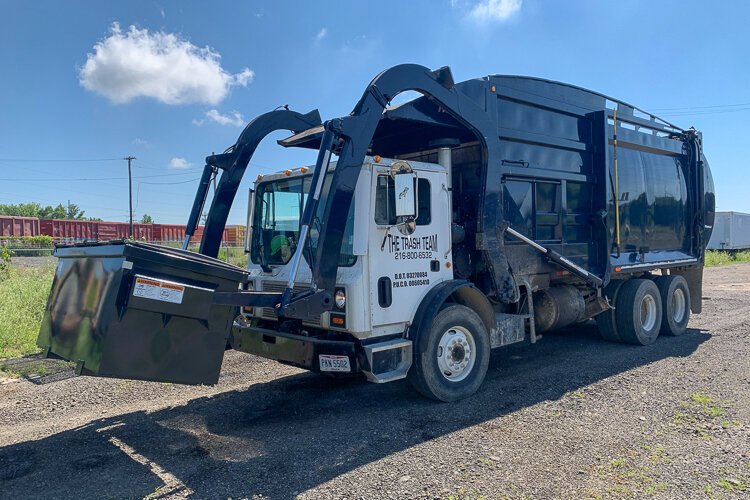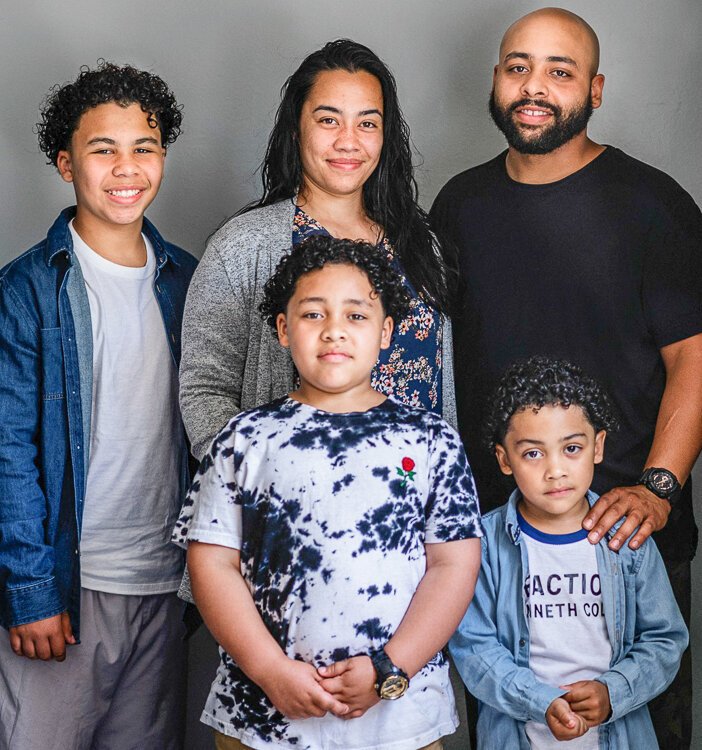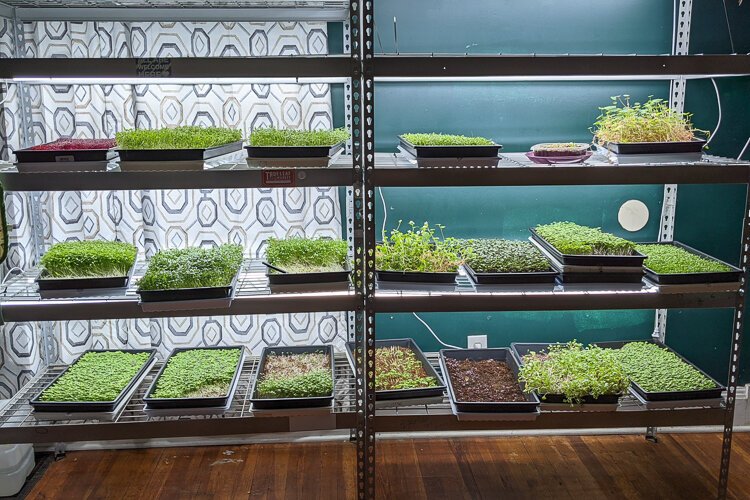Puzzle pieces: CDCs a critical part of a neighborhood network for small businesses
Cleveland’s Community Development Corporations (CDCs) are “boots on the ground” for small businesses, offering programs, services and activities designed to promote neighborhood improvement. Continuing this metaphor, CDCs cannot be successful without a network of organizations joining them on the march to economic progress, their supporters maintain.
 Jasmine Dixon, vice president of business growth development for the Economic and Community Development Institute“We all bring something different to the table,” says Jasmine Dixon, vice president of business growth development for the Economic and Community Development Institute (ECDI). “When it comes to building the economy, we have to do things collaboratively. We can’t operate in silos.”
Jasmine Dixon, vice president of business growth development for the Economic and Community Development Institute“We all bring something different to the table,” says Jasmine Dixon, vice president of business growth development for the Economic and Community Development Institute (ECDI). “When it comes to building the economy, we have to do things collaboratively. We can’t operate in silos.”
ECDI, a small-business resource center and certified CDC, recently introduced its entrepreneur-friendly SetUpShop partnership in two Cleveland neighborhoods. In promoting SetUpShop alongside the City of Cleveland, ECDI provides local startups training, access to capital, and a low-risk opportunity to test their concepts.
The first cohorts center on residents from the Glenville and Buckeye-Shaker neighborhoods. As a partner, the Famicos Foundation is delivering access to a local farmer’s market from where emerging businesses can sell their wares. Owners will operate from pop-up locations, then be replaced after six months by a new group of dream-seekers.
ECDI is also linking up with the Buckeye-Shaker CDC to assist small enterprises impacted by Opportunity Corridor construction. SetUpShop’s larger goal is to open shared spaces that the owners scale up themselves. However, reaching those startups requires a continuing relationship with local CDCs, says Dixon.
“CDCs have such a handle on their individual neighborhoods, and are able to tell us what’s out there,” Dixon says. “Anytime we go into a community, I ask who the CDCs are there.”
Creating connections
Metro West CDC covers three neighborhoods with significant Latino populations – the Stockyards, Clark-Fulton and Brooklyn Centre. In its support of these communities, Metro West offers funding for exterior improvements and rent assistance, while connecting proprietors to various loan and grant opportunities.
Links to the Hispanic Business Center and JumpStart are additional perks of the CDC-startup association, notes Metro West director of economic development Nick de Leon. For example, the organization provided Quisqueya La Bella restaurant in Brooklyn Centre with rent assistance. A connection to JumpStart, meanwhile, helped the restaurant acquire its current Clark Avenue site.
“We assist businesses with grant applications as well as through the city application process but will send them over to a business support organization with certified advisors when it comes to working out the financials,” de Leon says.
 Cleveland Fresh is a local business that grows local micro greens within 10- 20 days and then cut, washed and harvest for orders.Metro West pointed Cleveland Fresh owner Tanisha Velez to community garden spaces early in her entrepreneurial career. Until recently, Velez’s microgreens startup also had a dedicated space as part of the Tremont Storefront Incubator program.
Cleveland Fresh is a local business that grows local micro greens within 10- 20 days and then cut, washed and harvest for orders.Metro West pointed Cleveland Fresh owner Tanisha Velez to community garden spaces early in her entrepreneurial career. Until recently, Velez’s microgreens startup also had a dedicated space as part of the Tremont Storefront Incubator program.
Today, Velez operates from her home in Cleveland’s Jefferson neighborhood, growing grab-and-go fresh produce on LED-illuminated racks in her dining room. Boosted by $15,000 in grant funding from Cleveland Neighborhood Progress (CNP), Velez recently hired an assistant to aid her with business planning.
Though appreciative of Cleveland’s development ecosystem, Velez would have liked more support early on in building a specially tailored business plan. She would also appreciate more transparency regarding how CDCs prioritize startup funding and other business acceleration opportunities. Ultimately, she wants all underserved populations to have a chance in creating wealth in their own backyards.
“Putting money into a community gives people hope,” says Velez. “People will want to spend money and hire others from the community. I never thought I’d be messing with dirt; I thought I’d be in a factory. My business is about connecting people back to nature.”
Tapping into the network
Cleveland native Reggie Jefferson credits a vital network of business-centric sources for getting his independent trash-hauling company rolling. Jefferson harnessed an $8,000 grant from the Business Growth Collaborative, a multi-partner effort that has disbursed about $200,000 to 40 minority-owned Northeast Ohio businesses in response to the COVID-19 crisis.
 A former employee of a Cleveland trash pickup company, Reggie Jefferson kickstarted the haulage concern called The Trash Team.Jefferson utilized those dollars for repairs on two trucks now picking up waste from a variety of customers—restaurants, retailers, and basically anyone that needs their dumpster emptied. A former employee of Cleveland trash pickup company Republic Services, Jefferson kickstarted the haulage concern four years ago, naming it The Trash Team.
A former employee of a Cleveland trash pickup company, Reggie Jefferson kickstarted the haulage concern called The Trash Team.Jefferson utilized those dollars for repairs on two trucks now picking up waste from a variety of customers—restaurants, retailers, and basically anyone that needs their dumpster emptied. A former employee of Cleveland trash pickup company Republic Services, Jefferson kickstarted the haulage concern four years ago, naming it The Trash Team.
“After 25 years in the business, I realized that I was as close to an expert as you could get,” says Jefferson, who runs the enterprise from his home in Macedonia, while storing his vehicles in a Cleveland depot. “So, I went ahead and did the homework and investigated how to get started.”
Though knowledgeable about the industry, Jefferson still required a leg-up on how to begin a business. He turned to CNP, receiving critical connections to funding as well as customers with multiple establishments.
“[CNP director of workforce development] Sheri Dozier held my hand and helped me through,” Jefferson says. “Getting those connections helped my residual business snowball.”
Twenty-percent year-over-year growth has Jefferson in the market for an additional driver—a position the burgeoning businessman hopes to fill by late spring. Even if asking for assistance doesn’t come easy, Jefferson is happy to have his Cleveland CDC connections.
“At the start I had no help—I went into my savings and drove to Virginia to buy my first truck,” says Jefferson. “Getting the grant was great and getting connected with specific businesses that needed my help was even better than the funding.”
This story is part of FreshWater’s series, Community Development Connection, in partnership with Cleveland Neighborhood Progress and Cleveland Development Advisors. The series seeks to raise awareness about the work of 29 Community Development Corporations (CDCs) as well as explore the efforts of neighborhood-based organizations, leaders, and residents who are focused on moving their communities forward during a time of unprecedented challenge.





